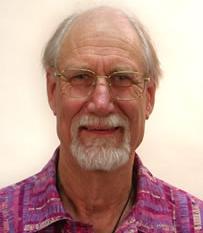Volker Heine facts for kids
Quick facts for kids
Volker Heine
|
|
|---|---|

Heine in 2012
|
|
| Born | September 19, 1930 Hamburg, Germany
|
| Alma mater | |
| Awards |
|
| Scientific career | |
| Fields | Condensed matter physics, materials science |
| Institutions | University of Cambridge |
| Doctoral advisor | Sir Nevill Mott |
| Doctoral students | John Pendry |
Volker Heine is a famous physicist who was born in Germany on September 19, 1930. He is known for his important work in understanding how tiny particles inside materials behave. He taught at the University of Cambridge for many years and is now a Professor Emeritus, which means he is a retired professor who still keeps his title.
Contents
About Volker Heine
Early Life and Education
Volker Heine was born in Hamburg, Germany. He went to school at Wanganui Collegiate School and then studied at the University of Otago in New Zealand. In 1954, he moved to the University of Cambridge in England. There, he earned his Ph.D. in physics in 1956, studying with a famous scientist named Sir Nevill Mott.
Career at Cambridge
After finishing his Ph.D., Volker Heine became a Fellow at Clare College. He joined a new group of scientists at the Cavendish Laboratory who focused on theoretical physics. Except for a few visits to the United States, he spent his entire career at Cambridge. In 1976, he became a professor and took charge of the "Theory of Condensed Matter" group. He led this group until he retired in 1997.
Shaping Science in Europe
Volker Heine was very active in the global science community. He especially helped shape how computer simulations are used to study materials in Europe. He started and led a group called the Psi-k network. This is a worldwide group of scientists who use computers to understand and design new materials. Their goal is to develop new theories, computer programs, and tools to predict how materials will behave. Psi-k organizes conferences, workshops, and training schools to share scientific ideas.
Awards and Recognition
Volker Heine has received many honors for his work.
- In 1974, he became a Fellow of the Royal Society, a very old and respected scientific group in the UK.
- In 1987, he became a Fellow of the American Physical Society.
- He won the Maxwell Medal and Prize in 1972.
- He received the Royal Medal from the Royal Society in 1993.
- The Institute of Physics awarded him the Dirac Medal in 1994.
- In 2001, he won the Max Born Prize.
He has also been a visiting professor at many universities around the world.
Family Life
Volker Heine is married to Daphne Heine, and they have three children.
Volker Heine's Research
Volker Heine's research focused on three main areas:
- Understanding how materials behave by studying their "electronic structure." This means looking at how electrons (tiny particles) are arranged and move inside materials.
- Figuring out why some materials have unusual, repeating patterns.
- Learning about the structure and properties of minerals from an atomic level.
His most important work was in developing theories about electronic structure. He created a method called "pseudopotentials." This method helps scientists calculate how electrons behave in materials like semiconductors. His work is still used today in many computer simulations.
He also helped us understand how electrons and vibrations in materials interact. He explained how atoms are arranged and move on the surfaces of materials. His ideas about "complex band structure" and "surface states" are key to understanding how electricity flows in materials and at their boundaries. This includes ideas like "metal-induced gap states" and "Schottky barriers," which are important for electronic devices.
Volker Heine also developed a way to study electronic structures using a "recursion method." He created models to explain the structures of materials like silicon carbide and minerals. He also studied how materials become magnetic and how they change their structure when heated. He has written over 200 research papers and a textbook.
 | Selma Burke |
 | Pauline Powell Burns |
 | Frederick J. Brown |
 | Robert Blackburn |

